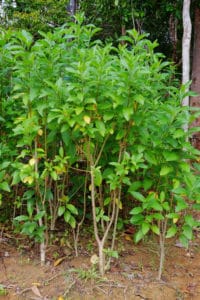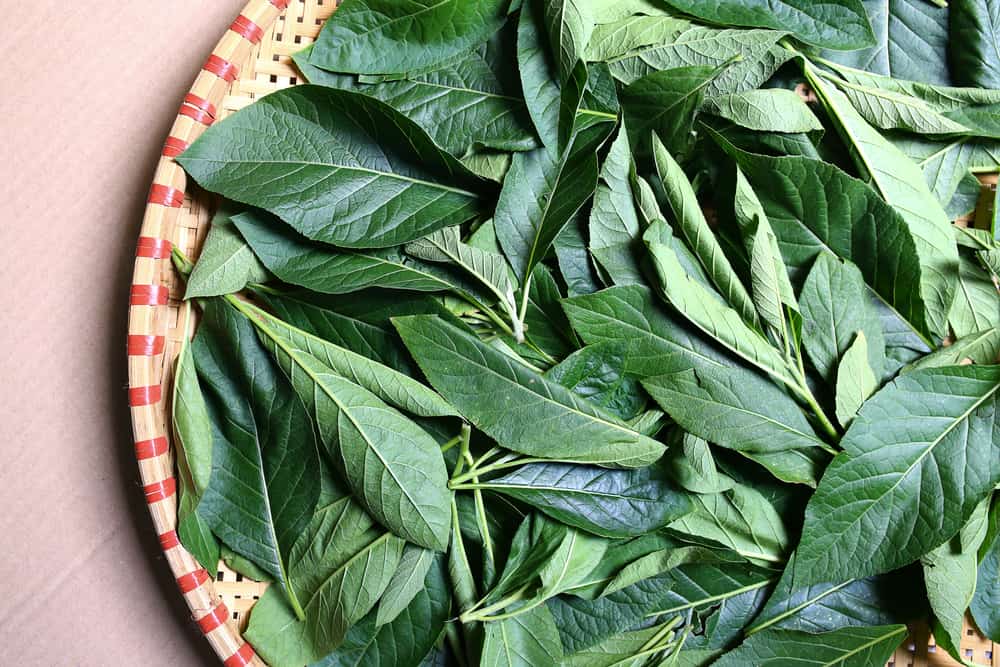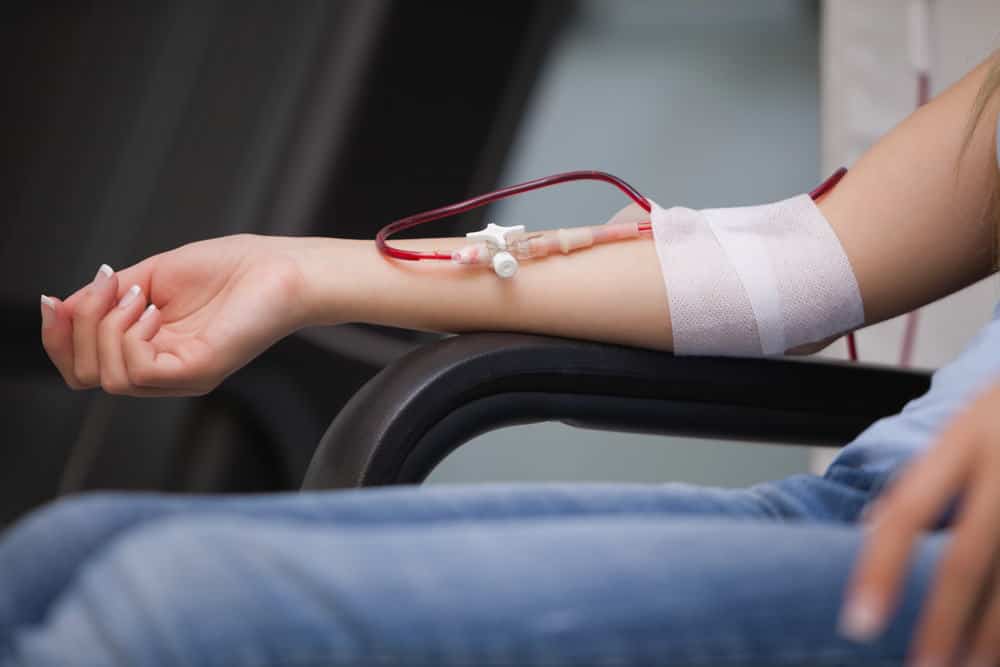Contents:
- Medical Video: 6 Ways Bohemian Rhapsody IGNORED Queen's TRUE STORY!
- Information on nutritional value of African leaves
- Benefits of African leaves for body health
- 1. Lower cholesterol
- 2. Helping cancer treatment
- 3. Prevent heart disease
- 4. Relieves symptoms of malaria fever
- 5. Contains antioxidants
- 6. Helps treat diabetes
- Do not carelessly consume African leaves without consulting first
Medical Video: 6 Ways Bohemian Rhapsody IGNORED Queen's TRUE STORY!
African leaves or Vernonia amygdalina are herbal plants that are popularly used as traditional medicine in western Africa, especially in Nigeria. Indeed, what are the benefits of African leaves for health?
Information on nutritional value of African leaves

Summarized from various studies, Vernonia amygdalina leaves include a source of protein, fiber (a type of water insoluble), and healthy fats that are quite high. In addition, African leaves are enriched by a number of other important minerals such as zinc, calcium, magnesium, potassium, iron, and sodium. These leaves also contain vitamin A, vitamin C, vitamin E, and vitamin B complex that can help meet the body's daily needs.
Benefits of African leaves for body health
African leaves have many health benefits that many people don't know. Among them:
1. Lower cholesterol
According to the Journal of Vascular Health and Risk Management, African leaves are believed to reduce LDL bad cholesterol levels in the blood by up to 50 percent and increase good cholesterol levels. Increasing HDL cholesterol is the biggest risk factor for heart attacks, strokes, and Alzheimer's disease. Meanwhile, good HDL cholesterol levels actually help maintain heart health and other body functions.
Even so, the findings of the study are still limited to the results of experiments in lab rats. So far there has been no strong research evidence regarding the benefits of African leaves to reduce cholesterol in humans. However, it doesn't hurt to try, right? (Originally consult with your doctor, yes!)
2. Helping cancer treatment
African leaf extract has been shown to reduce excess estrogen levels in the blood associated with an increased risk of breast cancer. That's why African leaves are believed to help reduce the risk of breast cancer.
These findings also show that African leaves can help recovery during breast cancer treatment. In a study by Jackson State University, African leaves could inhibit the growth of breast cancer cells. In other studies, leaf extract was proven to kill cancer cells in the nose and throat area.
3. Prevent heart disease
African leaves contain linolenic acid (omega 3) and linoleic acid (omega 6) which are very important for the body, but are not produced in the body. According to a study from the American Journal of Clinical Nutrition, adequate intake of omega-3 and omega-6 can reduce your risk of cardiovascular disease.
A 2009 study published in the journal Current Pharmaceutical Design reported that these two fatty acids have been shown to protect against coronary heart disease, sudden cardiac arrest, heart failure, blood clotting disorders, reduce the risk of atherosclerosis, and are anti-inflammatory (to fight injury, irritation or infection). In addition, omega 3 fatty acids are able to control rheumatism and provide protection against neurodegenerative diseases.
4. Relieves symptoms of malaria fever
African leaf juice has been used for centuries to treat malaria fever. In a clinical trial in Africa, fresh African leaf extract proved 67% effective in relieving fever and mild malaria. However, you cannot just rely on this leaf to cure malaria. You still need doctor's care.
5. Contains antioxidants
Vernonia amygdalina is a plant that contains high antioxidants. The antioxidant itself functions to protect against cell damage due to oxidative stress from exposure to free radicals. Antioxidants help reduce your risk of cancer, heart disease, stroke, aging, diabetes, arthritis, fibromyalgia, Parkinson's, Alzheimer's, autoimmune diseases, and other generative diseases.
6. Helps treat diabetes
In the area of its native habitat, African leaves are widely used for the treatment of alternative diabetes in addition to primary medical therapy.
This leaf extract contains active substances such as saponins, tannins, flavonoids, alkaloids, and polyphenols which are useful for lowering blood glucose after eating. Ethanol extract in African leaves can also reduce overall blood sugar levels. Studies conducted in animals show that these leaves lower blood glucose by up to 50% compared to untreated diabetic animals.
Do not carelessly consume African leaves without consulting first
Apart from those mentioned above, African leaves still store a myriad of other benefits such as helping to maintain immunity to treat intestinal worms. However, keep in mind that consumption of African leaves is not intended as the main treatment.
Scientific evidence to support the benefits of African leaves to treat various chronic diseases is still not strong enough. Most of the findings above are still preliminary in nature because they are made only based on laboratory tests in lab animals, not yet proven in humans.
Tell your doctor first if you intend to consume leaf Africa during any treatment related to your condition. Herbal medicines should not be taken carelessly because each person's reaction to drugs can be different from each other. Although they have the same complaints, not necessarily herbal medicines that turn out to be suitable for you will provide the same benefits to your child or neighbor.
Therefore herbal medicines should only be consumed to maintain health, restore disease, or reduce the risk of illness - not to cure. To cure diseases, prescription drugs are still needed.












